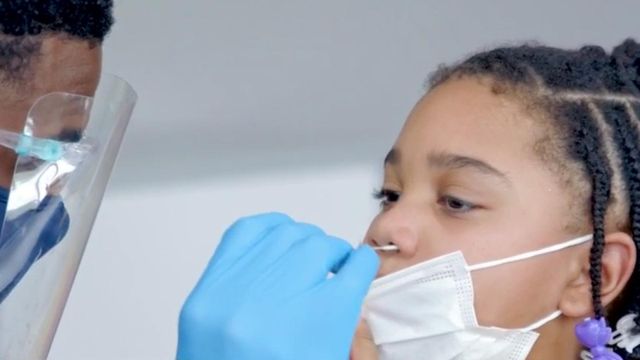Few take part in weekly coronavirus testing in Wake schools
Only 4 percent of eligible students and staff have signed up to take part in weekly coronavirus testing in Wake County schools.
Posted — UpdatedOnly 4 percent of eligible students and staff have signed up to take part in weekly coronavirus testing in Wake County schools.
But of the more than 7,000 students and staff eligible now, only 314 have enrolled in the testing program, which is run by Raleigh-based Mako Medical.
- 52 at Hortons Creek Elementary School
- 39 people at Mills Park Elementary School
- 32 at Baileywick Elementary School
- 30 at East Garner Elementary School
- 23 at White Oak Elementary School
- 22 at Briarcliff Elementary School
- 14 each at North Forest Pines Elementary School and Oakview Elementary School
- 11 at Sanford Creek Elementary School
- 8 at Carver Elementary School
Lisa Luten, a spokeswoman for the school district, said officials aren't concerned about the low number of people enrolled in the testing program.
"It’s not intended to reduce COVID cases on campus because we already have very little COVID spread on campus," Luten said. “We don’t have a problem with spread on campus.”
Benjamin also said weekly testing gives infected students "plenty of time to expose COVID to other kids."
So, the ABC Science Collaborative is partnering with state health officials to develop a new strategy, called “Test To Stay.” Students exposed to the virus would get tested on the first, third, fifth and seventh day after exposure, and they remain in school if they test negative and wear masks.
"The families are incentivized to say yes [to testing] because they get to to avoid quarantine," he said. "So, you actually end up testing a much higher fraction of the eligible population."
Researchers are studying “Test To Stay” in 10 districts across North Carolina, with participation rates of 60 to 80 percent, and Benjamin said the data looks promising.
"The transmission is very, very low, so it is going to save a bunch of quarantine in the mask-on-mask districts," he said, adding the program will soon be tested in districts that don't require masks.
Related Topics
• Credits
Copyright 2024 by Capitol Broadcasting Company. All rights reserved. This material may not be published, broadcast, rewritten or redistributed.






